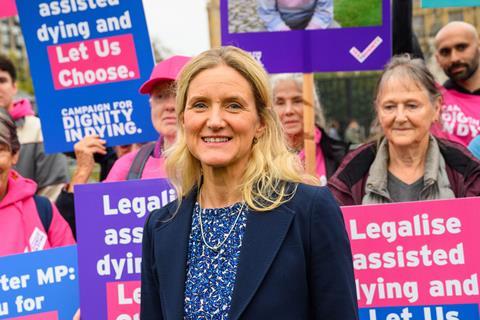Christians shouldn’t be surprised if assisted dying is legalised in the UK, says Tim Farron MP. But we must continue to challenge it, even if our motivations are questioned. The sanctity of life is at stake

Last Friday, the Commons was packed, as more than 160 MPs sought to express their views on Kim Leadbeater’s assisted dying bill.
I was pleased to be called as one of only about 45 members to make a speech. The debate was emotional but largely respectful, and MPs were divided across party lines. The atmosphere in the chamber was electric. We were all acutely aware of the ethical principles at stake.
The motivations behind assisted dying are, in fact, core Christian values
It was unclear which way the vote would go, and it passed with a majority of 55. The bill will now be taken to a committee to analyse it line by line. I welcome Kim Leadbeater’s assurances that the committee will reflect the mixed opinion across the House and take evidence from outside organisations.
Many voted in favour to ensure the proposals receive detailed examination, and those of us who were dismayed by the outcome now have a responsibility to scrutinise and challenge the provisions of the bill. Vulnerable people’s lives are at stake.
Subconscious assumptions
But if assisted dying is legalised in the UK, we shouldn’t be surprised. The Christian belief in the sanctity of every life has been gradually replaced by an understanding that someone’s intrinsic value is based on their abilities and capacity. Personal autonomy and control over our lives are viewed as the highest good.
Of course this is deeply worrying to many disabled people, such as the actor and campaigner Liz Carr, who wrote in The Guardian last week that “the lives of marginalised people are seen as more disposable than others”. This is, she believes, due to a widespread failure to understand how someone who is highly dependent on others can have any quality of life, or indeed that they might want to remain alive at all.
Those seeking to strengthen the bill’s safeguards must recognise the influence of this often-subconscious assumption.
But the wider media discussion around this bill has also demonstrated another assumption, indeed a suspicion, around the engagement of people of faith.
True motives
To caricature slightly (but not much), anyone saying: “I believe this because of my faith” is immediately dismissed as a sanctimonious God-botherer whose opinions hold no validity in today’s anti-religious society.
However, if we set out our arguments without reference to our faith, we are accused of speaking dishonestly and hiding our true motives.
I have a few concerns about this. Firstly, the bizarre but widely held notion that a non-religious outlook is somehow neutral and value-free. Secondly, the assumption that Christians only hold our beliefs because we are robotically obeying the commands of a distant and vengeful deity. Thirdly, it seems bizarre that a personal faith (in something other than secular atheism) must be publicly declared, like a register of interests for the soul.
Aside from the implied insult that we do not engage our brains, these critics fail to recognise that the motivations behind assisted dying – compassion and desire for dignity – are, in fact, core Christian values.
If we look to the Bible, we see God’s all-encompassing love for humankind. We see Jesus weeping at Lazarus’s tomb, sharing in the grief of Martha and Mary. We see his compassion as he heals the sick and disabled and as he offers hope to those in despair.
Engaging love
But let’s not be discouraged by this fundamental lack of understanding. Instead, it should challenge us to consider how we engage as Christians in the public square. We should be rebuked by the assumption that we are selfish and inward looking, caring only for our own souls.
Instead, we must find ways to radiate the ultimate hope we find in the outward-focused, neighbour-loving good news of Christ’s life, death and resurrection.
Christian belief in the sanctity of life has been gradually replaced
At the same time, it is a good reminder that we are not our own. We live and work to serve Jesus and our neighbours. We do not engage in politics to fight for our own interests – as I’ve said many times, the Church’s role in political life is not as just another lobby group.
The gospel is offensive to many because it exposes the reality that none of us actually have ultimate control over our lives or deaths. But we must never be offensive or slippery in the way we express this. We needn’t quote the Bible, but we should seek to reflect God’s love for all people in the way that we conduct ourselves.
We must continue to make the case against assisted dying as the process of this Bill goes on – scrutinising its aims and limiting its application as far as possible. Both in Parliament and outside, let’s pray for wisdom in our witness and compassion in our engagement.





































2 Readers' comments